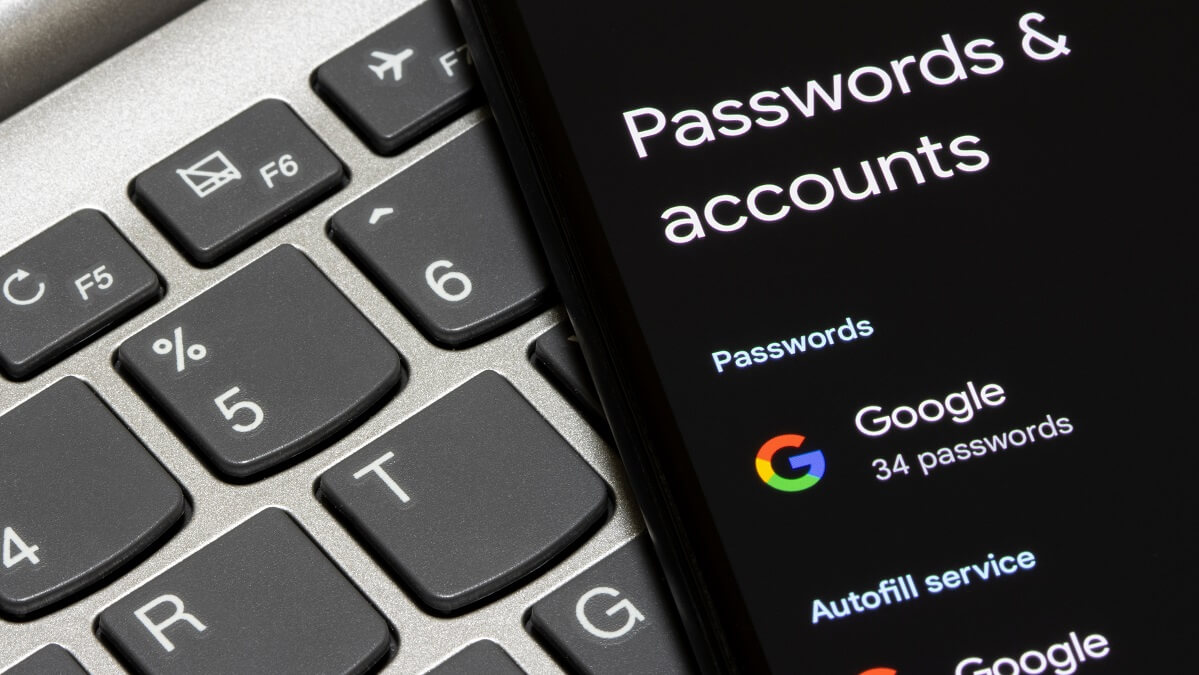Every day, we’re asked to enter multiple passwords. Whether it’s logging in to your computer, any of the innumerable apps on your phone or even just trying to turn on your smart appliance, it seems we need to remember a secret key for everything.
We’re told over and over again that having a single password for multiple accounts is unsafe, because if hackers crack that code, they can gain access to all your accounts at once.
So, it makes sense to have a different password for each account. But then there’s the ‘strength’ of your password. You need a combination of both upper- and lower-case letters, numbers and special characters such as the @ or $ symbols.
What this all means is that to keep your digital life secure, you need to have a series of complex and different passwords for every account. I’m not sure about anybody else, but I sometimes have trouble remembering to-do lists I wrote down this morning, so remembering all those passwords is a big ask.
Password managers are your friend
This is where a password manager can come in handy. A password manager is a piece of software or a web browser extension that can store all your passwords securely, so you don’t have to rely on your unreliable memory.
Some password managers even offer the ability to generate a complex, unique password to save you thinking up random strings of characters yourself. Password managers also use strong encryption methods to keep criminals out.
In addition, many password managers offer a variety of services that may include auto-filling information on forms; two- or multi-factor authentication; password syncing across multiple devices as well as automatically changing weak passwords.
But are they safe?
A password manager works similarly (albeit with more tech features) to simply writing down your passwords in a notebook. Most people could spot the security flaw in that method.
Like somebody discovering your book of passwords, what’s stopping somebody with the know-how from cracking open the password manager software to grab all the info inside?
The short answer is not much, if they’re skilled enough. But internet security firm Norton says strong data encryption means even if criminals get your passwords, they most likely won’t be able to access the passwords because the data will have been scrambled.
“Password managers can be hacked,” says Norton.
“But while cybercriminals may get ‘in’, it doesn’t mean they will get your vault password or other information. The information in your password manager is encrypted.
“Deciphering that encryption, which is usually industry-standard encryption like Advanced Encryption Standard (AES), is almost impossible.”
So, while a password manager may not be 100 per cent unbreakable, it is the safest option available for storing many complex passwords, unless, of course, you have a photographic memory.
A password manager certainly provides stronger security than writing them down in a book and is far more reliable than trying to remember them yourself.
Do you use a password manager? Do you find it easy to use? Let us know in the comments section below.
Also read: How screen reading apps can change your digital world


Yes, that’s fair comment but there are so many password managers around which one do you choose that is safe? Also which one is the easiest to use if your an octogenarian like me who is fairly adept computer wise but still struggle with complicated systems…
Nothing beats writing them down in a Black Notebook. They have enough info about ourselves.
The fact that Norton’s password manager vault holds encrypted data is comforting, but we’re still subject to human frailty because not putting just one of our many passwords into the vault (eg “I’m busy so I’ll do it later” but then forgetting all about it), means that single password is a virtual “open door” to the bad guys – whereas writing down passwords and keeping that single list somewhere safe means the bad guys can’t possibly get hold of it unless they physically break into your property!
LinMart if you read the story properly you would have already seen that the password is already in “Norton’s password manager” or whatever else managers you use because that is where your password is created in the first place.
Sorry Allen, if you read my reply slowly(!) you will hopefully see that I’m not talking about passwords already in the password manager vault (Norton’s or anyone else’s). My concern is with new passwords that we create but then forget to put in the vault (or think we’ll permit the vault to save it later but then forget to do it). And remembering to store (or permit the vault to store) a new password that I’ve just created, or ‘NOT remembering to store it’ is the crux of my concern. On the other hand, if a password’s already in the vault (regardless of who created it), it’s already safe and no concern of mine…
If the worst does happen, what is the situation re banks etc providing compensation for loss if you have used a password manager?
I love Sticky Password. Inexpensive (there is a free version, but a lifetime license to the Premium Edition is cheap as chips), simple to use, and from the research I have done, very safe. It also allows me to save information like tax file numbers, Centrelink reference numbers, driver license numbers, car registration details, insurance policy details, etc., all sorts of memos, and even bookmarks to favourite websites. And it has a security dashboard that warns you if there are security risks, plus it has Dark Web monitoring that regularly checks to ensure your information isn’t on the Dark Web. It can address LinMart’s fear too, as it can be set up to automatically save passwords that you create or change.
And no, I do not have any connection to the sellers and I don’t profit from recommending it. I just think it’s a great tool.
Nothing better than writing Passwords down.